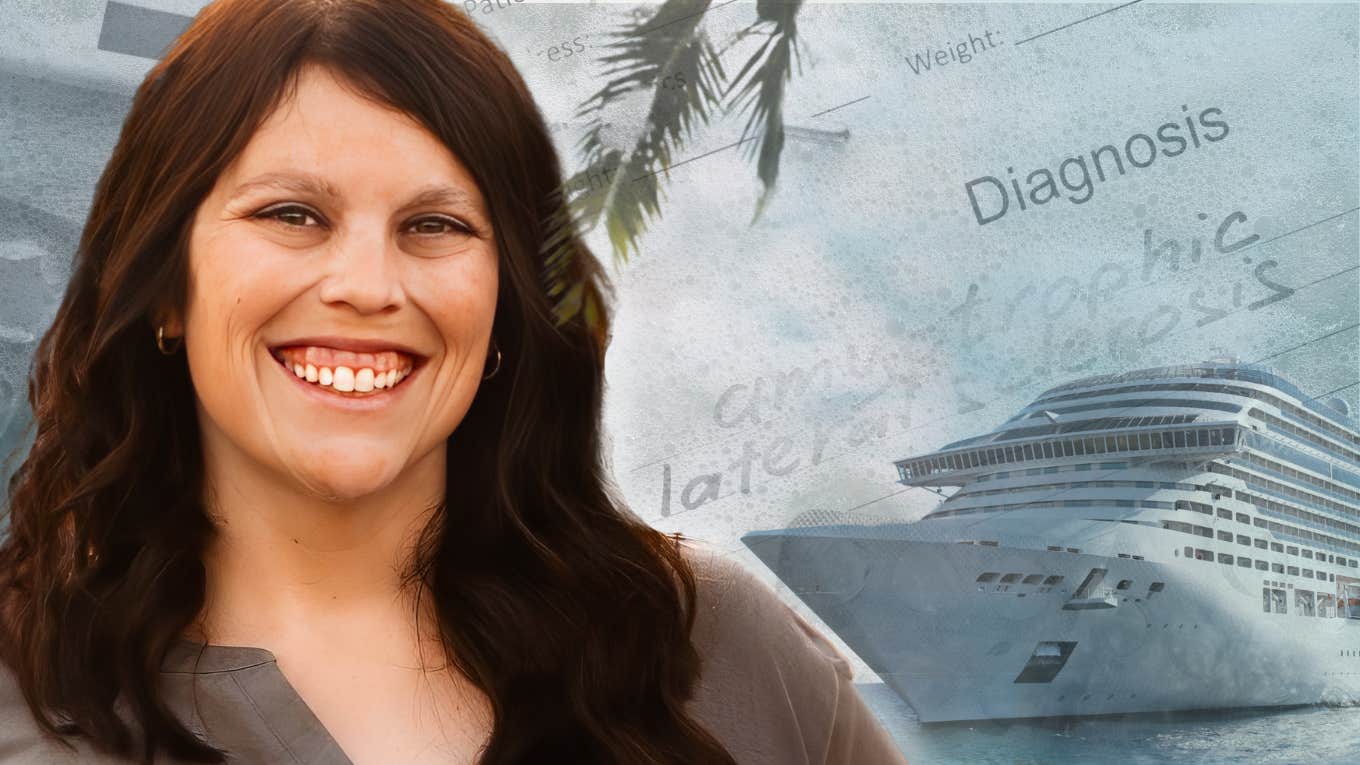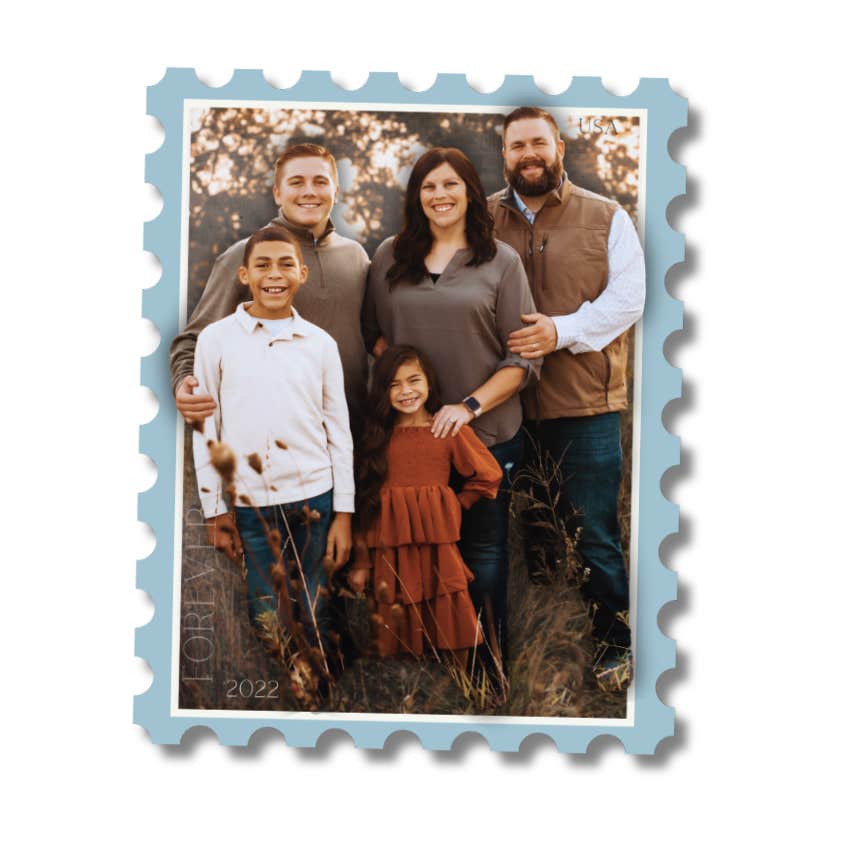Young Mom Reveals Bizarre First Sign That Led To Her Terminal ALS Diagnosis
ALS is a terminal disease that impacts the nervous system, breaking down nerve cells, which reduces muscle function.
 Courtesy of Author, Vitalii Vodolazskyi | Shutterstock. Kseniya Budko, alphaspirit.it | Canva
Courtesy of Author, Vitalii Vodolazskyi | Shutterstock. Kseniya Budko, alphaspirit.it | Canva It was a beautiful spring day in 2022 and I was at the park with my two younger children. While walking with my daughter to the slide my left knee buckled slightly, and I lost my balance. I thought this was odd but kept moving throughout my day. Little did I know that moment at the park would be the beginning of several “well, that was odd” moments, which eventually led to the horrifying realization that I was facing an all-too-familiar disease I had been dreading for much of my life.
I come from a family that has been plagued with familial amyotrophic lateral sclerosis (ALS), specifically with the superoxide dismutase 1 (SOD1) gene mutation.
A child born from a carrier of the SOD1 gene has a fifty percent chance of getting the ALS-causing gene from their affected parent. Nearly 22 members of my extended family have passed away from the disease, including my father. Currently, six members are fighting the disease.
ALS is a terminal disease that impacts the nervous system, breaking down nerve cells, which reduces muscle function. After meeting my neurologist, it was confirmed through genetic testing that I too carried the SOD1 mutation which caused the weakening in my left leg.
Sitting in the doctor’s office in October 2022 was one of the most surreal experiences of my life. I had been dreading this day for as long as I could remember, the day I had hoped would never come. However, my first appointment went nothing like I had envisioned. Instead, the neurologist said, “This isn’t your father’s ALS” as she impressed upon me information about new medications that are meant to slow the progression of this ugly disease. One of the most promising medications, QALSODY ® (tofersen), is the first FDA-approved medication that targets a genetic cause of ALS in SOD1-affected patients and is intended to slow the progression of the disease.
I left the appointment feeling relieved, even slightly excited, not because I had been handed the ALS diagnosis, which I had known was coming, but because during that appointment I was given a small amount of power back. I was given access to medications that weren’t available during my father’s fight with ALS.
I started the medication in December 2022 and my weakness in my left quad had become so great I was having to crawl up the stairs to the second floor of my home. However, after receiving the medication for several months I started to see improvements in my strength. I am now walking up the stairs again with the help of the banister.
When I was initially diagnosed in October 2022, we booked a Disney Cruise for December 2023. Given the nature of ALS, I planned to be in a wheelchair by the time the trip came due to the progression of the illness. When it came time to go on our cruise in December 2023, not only was I not confined to a wheelchair, but I was able to experience Stingray City with my family going up and down a ladder in the middle of the ocean!
 Photo Courtesy Of Author
Photo Courtesy Of Author
Dealing with an illness is just as difficult mentally as it is physically. However, if there is one piece of advice I could give anyone facing a difficult diagnosis it would be that your diagnosis does not define you.
I frequently say I have ALS, but I do not live ALS. My husband and I decided early on in my journey with ALS that we would fill our lives with as many memories and exciting adventures as we could. We decided to focus our time on living.
 Photo Courtesy Of Author
Photo Courtesy Of Author
Keeping a hopeful and positive attitude in the face of a terminal illness is much easier said than done and I have had dark days. However, perspective is everything when you are dealing with a difficult situation in life. I am not unrealistic. I understand ALS will cost me time with my loved ones, however, I also know it doesn’t benefit me to spend the time I do have worrying about what ALS will take from me when I could be creating memories and living my life to the fullest.
The sense of empowerment I had from that very first neurologist appointment continues to be a mantra for me. I am committed to living my life and fighting ALS every step of the way. When I get knocked down or have a bad day, I focus on getting right back up to face the next challenge. My family and I continue to embrace each day, and I can honestly say the last year since my diagnosis has been one of the most fulfilling years of my life living with ALS.
Jessica Morris is a social worker and mother of three in her mid-30s who has an ultra-rare genetic form of ALS. She actively participates in clinical studies and advocates for research initiatives that could lead to the discovery of medical breakthroughs for generations to come.

